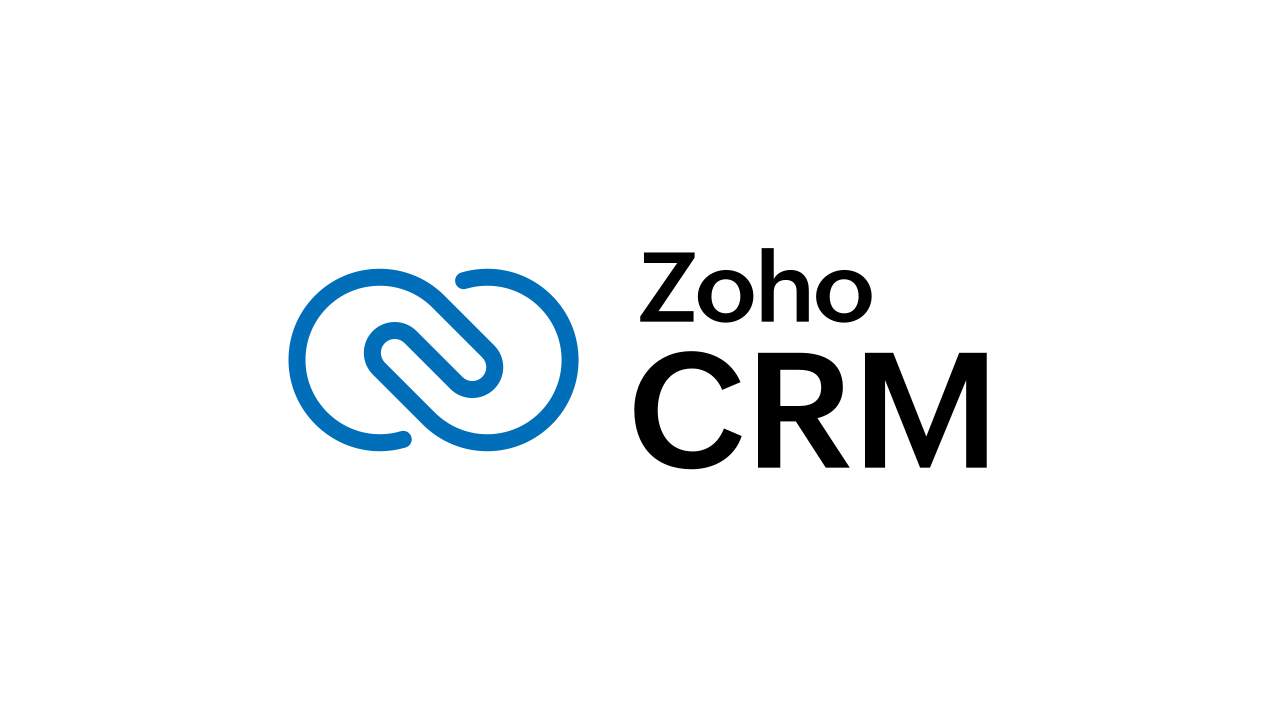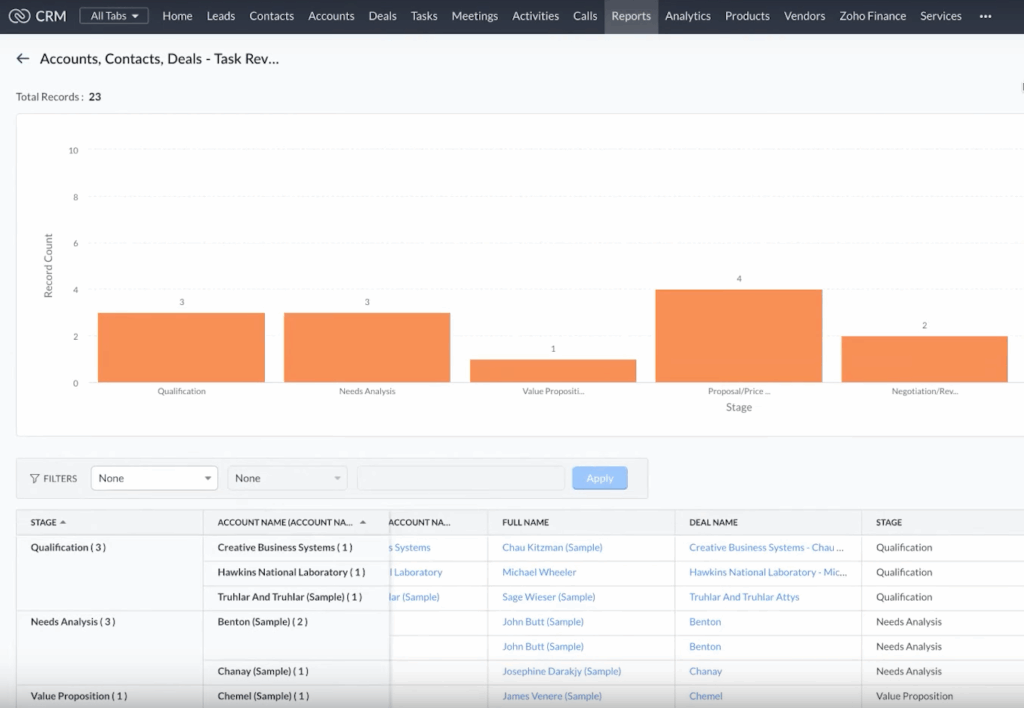Zoho CRM: in detail about the main things

Zoho Corporation is a prominent provider of cloud-based software suites designed to empower businesses of all sizes. Founded over 29 years ago, Zoho has grown into a global entity serving millions of users across numerous countries, with a strong emphasis on sustainability, privacy, and innovation. The company operates on a customer-first philosophy, investing heavily in research and development while owning its data centers to ensure reliability. Unlike many tech firms, Zoho does not rely on advertising revenue; instead, it generates income through software licenses, prioritizing user data privacy by never owning or selling it. This approach has positioned Zoho as a trusted partner for organizations seeking efficient, integrated tools to streamline operations.
Transitioning to the core topic, Customer Relationship Management (CRM) refers to a strategic process and technology that organizations use to manage, analyze, and improve interactions with current and potential customers. At its heart, CRM software serves as a central hub for storing customer data, tracking communication histories, and facilitating personalized engagements. This enables businesses to enhance sales, marketing, and customer service efforts, ultimately driving growth and loyalty. In simple terms, CRM transforms scattered customer information into actionable insights, helping teams work more efficiently.
Table of Contents
- Quick Summary
- What is Zoho CRM?
- Who This System is Suitable For
- Zoho CRM Features and Functions
- Import Data from Other Systems
- Pros and Cons
- Pricing Policy
- Integrations with Other Systems
- Zoho CRM Core Modules
- Automatization
- Security and Privacy
- Examples of Other Zoho Developments
- How does Zoho CRM differ from its competitors?
- Let’s summarize
- FAQs

Quick Summary
| Takeaway | Explanation |
| AI-Powered Insights | Zoho CRM integrates Zia AI for predictive analytics, anomaly detection, and automated recommendations, helping users make data-driven decisions quickly. |
| Sales Automation | Automates routine tasks like follow-ups and contact tracking, freeing sales teams to focus on relationship-building and closing deals. |
| Lead Management | Enables efficient lead nurturing through enrichment, engagement, and pipeline progression, turning prospects into loyal customers. |
| Customizable Interface | Offers infinite customization with layouts, modules, and no-code tools, allowing businesses to tailor the CRM to their unique workflows. |
| Business Intelligence | Provides dynamic dashboards, reports, and anomaly alerts for turning complex data into actionable business insights. |
| Multichannel Engagement | Supports omnichannel interactions, including email, calls, and social media, for a seamless customer experience. |
| Affordable Scalability | Starts with a free plan for small teams and scales to enterprise levels with flexible pricing, ensuring growth without high costs. |
| Collaboration Tools | Breaks down silos with features like portals and team modules, enabling cross-departmental teamwork. |
What is Zoho CRM?
Overview and Purpose
Zoho CRM is a comprehensive cloud-based customer relationship management software designed to help businesses manage sales, marketing, and customer support in one unified platform. At its core, it provides a 360-degree view of customer interactions, enabling teams to convert leads, build relationships, and drive revenue growth. Launched as part of Zoho‘s ecosystem, it emphasizes contextual AI and a thoughtful user interface to make sales processes more efficient and intuitive. Unlike traditional CRMs, Zoho focuses on privacy and flexibility, with features that scale from solo entrepreneurs to large enterprises.
Key Differentiators
Furthermore, Zoho CRM stands out for its AI assistant, Zia, which offers predictive insights and automations that go beyond basic task management. It supports multichannel engagement, allowing users to interact with customers via email, phone, social media, and more, all while maintaining data security. This makes it not just a tool for tracking deals but a strategic partner for business resilience. In comparison to competitors, Zoho CRM is praised for its cost-effectiveness and rapid deployment, often resulting in significant savings on licensing fees.
Who This System is Suitable For
Small Businesses and Startups
Zoho CRM is a versatile platform that caters to a wide range of users, making it an ideal choice for businesses at various stages of growth. Primarily, it appeals to small businesses and startups due to its free edition for up to three users, which includes essential features like lead management and mobile apps. This allows entrepreneurs and freelancers to organize customer data without incurring costs, providing a low-barrier entry into professional CRM tools. Additionally, its user-friendly interface and quick implementation—often 50% faster than competitors—make it accessible for teams with limited technical expertise.
Mid-Sized Enterprises
For mid-sized enterprises, Zoho CRM shines in its scalability and customization options. Companies in this category can leverage advanced features like AI-driven forecasting and inventory management to streamline operations and enhance productivity by up to 27%. The platform’s ability to integrate with over 1,000 applications ensures it fits seamlessly into existing workflows, supporting sales, marketing, and customer service teams in collaborative environments.
Large Organizations
However, larger organizations with complex needs will find the Enterprise and Ultimate plans particularly beneficial, offering territory management, multi-user portals, and low-code development for handling high-volume data and global teams.
In essence, Zoho CRM is suitable for any business prioritizing affordability, flexibility, and privacy. Industries such as retail, real estate, and professional services often benefit the most, as the tool adapts to sector-specific processes. Nevertheless, it may require some initial setup for non-tech-savvy users, but overall, its broad applicability makes it a go-to solution for resilient growth.
Zoho CRM Features and Functions
Artificial Intelligence Assistance
Zoho CRM boasts a robust suite of features that empower sales teams to operate at peak efficiency. One standout function is its Artificial Intelligence assistance through Zia, which converses with users, provides dynamic recommendations, automates follow-ups, detects anomalies, predicts outcomes, and analyzes emails. This AI integration transforms the CRM into an intelligent partner, helping users anticipate customer needs and optimize strategies.
Sales Automation, Lead Management, Process Automation
Additionally, Sales Automation streamlines tedious tasks such as contact tracking and updates, allowing reps to prioritize relationship-building. Lead Management further enhances this by focusing on engagement, enrichment, and nurturing to convert prospects into deals. Process Automation ties it all together, guiding users through structured workflows from initial contact to closure, ensuring consistency and scalability.
Business Intelligence
Moreover, customization is a key strength, offering users a flexible framework to design modules, layouts, and data capture methods tailored to their workflows. Business Intelligence rounds out the features with dynamic dashboards, report generation, and proactive insights, turning data into decision-making power. These functions collectively make Zoho CRM a comprehensive tool for modern sales environments.
At the start, the user is given a 15-day trial access, then he can switch to a free license or transfer his offline office to the online space. The system has a clear, concise interface. The Zoho start screen has widgets with open tasks, previous contacts, and indicates the stages of deals.
“Hot contracts” that should be closed in the current reporting period are highlighted. To familiarize yourself with the capabilities of the system, it is suggested to import the initial data. We recommend that you agree to the offer, it will be easier to understand the features of the platform.
The sales automation function includes workflow automation, account management, contact management, deal management, and lead management. Then this is supplemented by collaboration, marketing automation, sales forecasting, performance management, partner relationship management, sales support, and intelligent knowledge.

Import Data from Other Systems
Supported Formats
Importing data into Zoho CRM from other systems is a straightforward process that ensures seamless migration and continuity. Supported formats include CSV, XLS, XLSX, and VCF files, as well as direct imports from popular CRMs like Salesforce, HubSpot, and Microsoft Dynamics. This flexibility allows users to transfer contacts, leads, deals, and custom fields without significant data loss.
Step-by-step process
However, for truncated or complex files, using specialized tools like the search_pdf_attachment might be necessary, though in standard cases, Zoho‘s import wizard handles it efficiently.The step-by-step process begins with navigating to the Setup section in Zoho CRM, selecting Data Administration, and choosing Import. Users upload their file, map fields to match Zoho’s modules, and review for duplicates or errors. Options like skipping or overwriting existing records provide control, and post-import, data validation ensures accuracy.
Best practices
Best practices include cleaning data beforehand, testing with small batches, and utilizing Zoho’s Jumpstart migration service for complex switches from spreadsheets or other platforms.In addition, Zoho offers API-based imports for developers, enabling automated data syncing. This feature is particularly useful for ongoing integrations, reducing manual effort and minimizing errors. Overall, the import functionality supports quick onboarding, helping businesses hit the ground running.
Data transfer Available From:
- Salesforce;
- Microsoft Dynamics;
- Pipedrive;
- HubSpot;
- Insightly;
- Highrise;
- Other CRMs.
It is worth highlighting the log, where the import history is stored. You can view a list of recent operations in it.
API
API is an interface that allows one piece of software to receive data from another based on procedures that are plugged in. For example, a developer can create a bot in Telegram, connect it to the CRM API using a secret key, and receive notifications in the messenger about new deals or customer requests.
As for Zoho, the API documentation is detailed. A web developer or desktop application creator with basic knowledge of English should have no difficulty understanding the list of variables and constants.
The list of calls to the automated interface is limited by the tariff plan. The list of limits is provided in the documentation. In a special tab there is a convenient panel where you can track the history of calls. Statistics are updated with a 15-minute delay.
Pros and Cons
The advantages of this product include:
- Ease of use. The system has a convenient, intuitive interface, so it won’t take much time for your employees to learn. CRM, due to its thoughtfulness and functionality, provides easy migration from spreadsheets or other tools without losing existing data or reformatting it.
- Modular structure. Only the tools necessary for your business are selected and implemented, which simplifies the integrator’s work and reduces the price of the service. In the future, it is possible to connect new functions if the need arises.
- Business process automation. This allows you to save resources, increase employee efficiency, reduce transaction costs, track customer lifecycle after implementation, etc.
- High level of security. Your databases and other information are stored in cloud services, which protects them from damage, destruction, or unauthorized access. Backups are created automatically, which reduces the cost of hiring professional system administrators.
The disadvantages of this product include:
- Complex Setup for Beginners. Zoho CRM is packed with customization options, from workflows to dashboards and automation. While this flexibility is a strength, it can be overwhelming for beginners or small teams without technical expertise. Often, users need extra time or support to configure the platform effectively.
- Limited Advanced Features in Lower Plans. The lower-tier plans are budget-friendly but come with limited functionality. Essential tools like advanced analytics, AI-driven insights, and deeper automation workflows are locked behind higher-tier subscriptions. This means businesses often need to upgrade to access the full potential of the system.
- Integration Challenges. Although Zoho CRM supports integrations with popular tools like Mailchimp, QuickBooks, and Google Workspace, setting them up isn’t always seamless. Some integrations require technical knowledge or third-party connectors, which can increase both complexity and costs for businesses.
- Customer Support Response Time. While Zoho provides various support channels, response times can be slow, particularly for users on standard plans. Businesses with critical issues may find it frustrating to wait for resolutions, making premium support a more reliable—yet costlier—option.

Pricing Policy
To start working with Zoho CRM, you need to purchase a license. A license is required in order to have access to the system for a month or a year. Each license gives you the right to connect using your login and password as many times as you want, for example, from a computer, laptop, and smartphone. Licensing is done by user, that is, one license corresponds to one user registered in CRM. You can run as many simultaneous sessions as you want under one user. It is important to understand this in order to determine the number of licenses that you need to purchase.
For example, if the company has 3 managers who only use reports in the CRM system, you do not need to purchase 3 licenses, one will be enough. But the number of users registered in Zoho CRM cannot be greater than the number of licenses, this must be understood. That is, to give access to a new user, you must either deactivate another user or purchase a new license.
We have figured out the number of licenses, now you need to choose a tariff:
- Free plan: Key features:
- Core CRM functions
- Basic reporting
- Mobile access
- Integrations
- Task and workflow automation
- Standard: $16/user/month billed annually. Includes:
- Mass email
- Custom modules
- Workflows
- Cadences
- Sales forecasting
- Lookup fields
- CanvasOffice 365 integration
- Zoho Marketplace
- Professional: $27/user/month billed annually. Includes everything in Standard +:
- Blueprint
- CPQ
- Sales
- Signals
- Inventory management
- Webhooks
- Assignment rules
- Validation rules
- Kiosk Studio
- Google Ads integration
- Enterprise: $47/user/month billed annually. Includes everything in Professional +:
- Zia — AI assistant
- Territory management
- Custom functions
- Journey orchestration
- Multi-user portals
- Page layouts
- Client scripts
- Approval process
- Sandbox
- Ultimate: $61/user/month billed annually. Includes everything in Enterprise +:
- Enhanced feature limits
- Custom AI/ML platform
- Advanced customization
- Data preparation
- Augmented analytics
- Data storytelling
- Unified business insights
- Advanced administration
The cost of the platform for one user ranges from 16 to 61 $ per month (annual subscription). A detailed comparison of subscriptions can be viewed on the Zoho CRM website.
Integrations with Other Systems
Zoho CRM excels in integrations, connecting natively with Zoho’s ecosystem like Zoho Books for finance and Zoho Mail for communication. It also supports Google Workspace, Microsoft 365, and tools like Slack for enhanced collaboration.
Through Zoho Marketplace, over 900 third-party extensions are available, including integrations with QuickBooks, Shopify, and Zoom.Additionally, API and webhooks enable custom connections, such as with ERP systems or custom apps. This extensive network—over 1,000 apps—ensures data flows seamlessly, reducing silos and boosting efficiency. For instance, Google Ads integration measures campaign performance directly in CRM.In summary, these integrations make Zoho CRM a hub for unified business operations.

Zoho CRM Core Modules
Modules are components of the system that play an important role in its functioning. Zoho has built-in add-ons: contacts, contractors, agreements, operations, tasks, events, calls, reports, etc. The user can create unique modules for their tasks. CRM has a lot of different components. The developers were able to competently combine modules for working on projects, communicating with customers, and managing deals.
The platform covers all basic needs:
- Maintaining a database of counterparties;
- Working with contacts;
- Accounting for deals. Creating reports on sales and interactions with leads;
- Working with orders and invoices;
- Task and project management;
- Online chat with employees and contacts;
- Convenient notification system;
- Built-in search.
Zoho CRM’s core modules form the backbone of its functionality, starting with Cadences, which automate follow-up sequences that adapt to lead responses for effective nurturing. Blueprint ensures compliant sales processes with step-by-step guidance, while Page Layouts allow custom designs for data capture.
Kiosk Studio simplifies complex processes into interactive screens, and Journey Orchestration maps end-to-end customer paths for timely engagements. CRM for Everyone promotes collaboration by breaking silos, with Canvas enhancing visual experiences.
Client Script enables custom coding, Layouts offer field tailoring, and Portals facilitate external collaborations. These modules collectively provide a modular, adaptable framework.
Automatization
Automation in Zoho CRM streamlines operations through workflows that automate sales activities across the funnel, including cadences for responsive follow-ups and journey orchestration for customer experiences.
Blueprints enforce structured processes, ensuring uniformity.AI-driven automation via Zia predicts outcomes, flags anomalies, and automates tasks like email analysis. This reduces manual work, allowing focus on strategy.Overall, these tools enhance efficiency and scalability.
You can also automate all the routine processes in Zoho CRM by writing rules. For example, with Workflow, you can create workflow rules that can be applied to various modules such as leads, deals, invoices, products, sales orders, and many more. Specific actions such as sending an email, adding a label, or updating a required field can be performed if certain conditions are met. Workflow rules can contain up to 10 conditions, providing extremely advanced automation to reduce time-consuming administrative tasks.

Security and Privacy
The issue of protecting customer personal data and transaction information is a concern for many users. Zoho puts security first.
The following facts prove this:
- Two-factor authentication via Face ID, Touch ID, SMS, voice call and Google Authenticator. Data on servers is encrypted via a security protocol. The same measures are applied during data transmission.
- Secure online storage to work with confidential data.
- Login restrictions by IP address.
- The user independently chooses a server in the USA or the European Union.
- Audit log to track user activity history.
- Backup.
- Functionality restrictions by roles.
Examples of Other Zoho Developments

The App Store has many interesting extensions that increase the functionality of the system. Among them, it is worth highlighting: connection to WhatsApp, creation of a Kanban board, integration with Google Drive and Dropbox cloud storage.
Zoho Reports
Let’s pay special attention to such a tool as Zoho Reports. Zoho Reports is a report builder for Zoho CRM. With its help, you can create almost any report in any section. The system has basic reports, which are quite good, but, in addition, you can easily create your own report.
Examples of ZOHO reports:
- by calls: their effectiveness, duration, topic, etc.;
- by revenue;
- by products and product groups;
- by managers and groups of managers;
- temporary reports: for the day, week, month;
- by tasks: their stages, deadlines;
- by transactions: their stages, amounts, probabilities of winning;
- and many other reports.

Zoho Creator
A few words need to be said about a tool like Zoho Creator – a system for creating your own applications within Zoho. Creator seamlessly integrates with Zoho CRM.
It is a low-code application builder that lets you create apps from the ground up to meet the needs of your organization. In this video, we will show you how you can create your own app and add it to your Zoho One App launcher.
Zoho Creator is a universal platform for widespread use that:
- allows you to develop your own applications with minimal code that are necessary for specific companies;
- offers various customization options, as well as ready-made solutions for integration with various systems and cloud services;
- has an intuitive visual interface that allows you to transform business logic of any complexity into processes with working functionality;
- has a convenient function for creating an application by using ready-made templates and connecting various components;
- helps automate workflows, as well as optimize data collection and management;
- allows multiple users to work with one application at the same time;
- provides the ability to use dashboard functions to track key indicators and draw practical conclusions;
- provides access rights management only for the users you specify, which guarantees the security of business processes.
The availability of ready-to-use code snippets, form and report templates, as well as intuitive visual designers will allow you to quickly launch the desired project.
Zoho Books
This is online accounting software from Zoho Corporation. It is designed to simplify financial management for small businesses, freelancers, and startups. Take control of your finances. Set up management accounting in Zoho Books and get P&L, cash flow, and dozens of other financial reports.
Zoho Analytics
- is used to analyze large amounts of data;
- allows you to create graphs and charts to improve the visualization of processed digital information;
- has a convenient interface for performing tasks related to preparing, transforming and combining data, as well as creating your own formulas and fields for calculation;
- thanks to the presence of a powerful BI tool, it is easily integrated into various applications;
- helps to quickly generate reports with large amounts of data and share them with colleagues;
- ensures the security of confidential information, offering detailed access control.
This platform is ideal for companies that value business automation. It provides advanced capabilities for performing analytical calculations of forecast indicators based on identified trends.
Zoho Projects
It is a feature-rich online project management tool with collaboration and issues tracking capabilities that allows teams to work together more efficiently. Professionally manage external and internal projects with Zoho Projects, control employee workload and task deadlines.
Zoho Workplace
The Zoho Workplace suite includes apps for email, instant messaging and calling, organization intranet, word processor, spreadsheets, presentations, online meeting and conferencing, virtual training. Build perfect communication within the team.
Zoho Desk
For many years, Zoho Desk has been meeting the functional needs of users who need to easily manage their customer support options. It is one of the solutions in the Zoho Customers system, which allows you to assign, configure, and monitor support messages, track customer satisfaction, build a loyal customer base, and more.
Zoho Marketing
The suite of marketing automation and management tools offered by Zoho Corporation, including platforms like Zoho Marketing Plus and Zoho Marketing Automation, designed to help businesses create, execute, and analyze integrated marketing campaigns across multiple channels such as email, social media, webinars, events, and surveys.

How does Zoho CRM differ from its competitors?
Zoho‘s main competitive advantage is one of the best “functionality/price” ratios on the market. Zoho is quite quickly and easily configured and integrated with any modern IT systems. It is worth mentioning separately about mobile applications – they are considered one of the best in the industry at Zoho and do not require separate configuration. That is, all processes configured in the main (computer) platform of Zoho will work identically in mobile applications.
Zoho One is a practical package solution for business. For the price of one CRM, you get not only it, but also 40 additional modules that allow you to integrate the system, launch marketing and financial tools, and set up effective communication channels.
Implementing Zoho CRM allows you to significantly increase sales, automate certain processes of the marketing department, simplify the procedure for concluding a contract, and also receive a detailed report on the work performed. This system is suitable for both small companies and full-fledged enterprises with thousands of employees.
Zoho CRM integration is carried out in several stages, taking into account the specifics of your business, the structure of the company and its divisions. This process takes some time, but does not affect its functioning. Current processes will not be stopped – the implementation takes place in parallel, with a demonstration of the results at different stages of work. CRM is integrated with the existing portal, online store, communication channels (telephony, Viber, Telegram, WhatsApp), with payment systems and other available tools. Our specialists develop an integration plan and strictly adhere to it so that the whole process is as fast and efficient as possible.
Let’s summarize
In conclusion, Zoho CRM emerges as a powerful, affordable tool for managing customer relationships, with features that support growth across business sizes. While it has minor drawbacks like a learning curve, its strengths in AI, automation, and integrations make it a top choice. As businesses evolve, Zoho CRM provides the resilience needed to thrive.
FAQs
Yes, there’s a free edition for up to three users with basic features.
It uses encryption, MFA, and compliance audits to protect data.
Absolutely, with over 1,000 integrations via Marketplace.
Its low cost, ease of use, and scalable features.
Yes, Zia AI provides predictions and automations.
Often 50% faster than competitors, with migration support.



